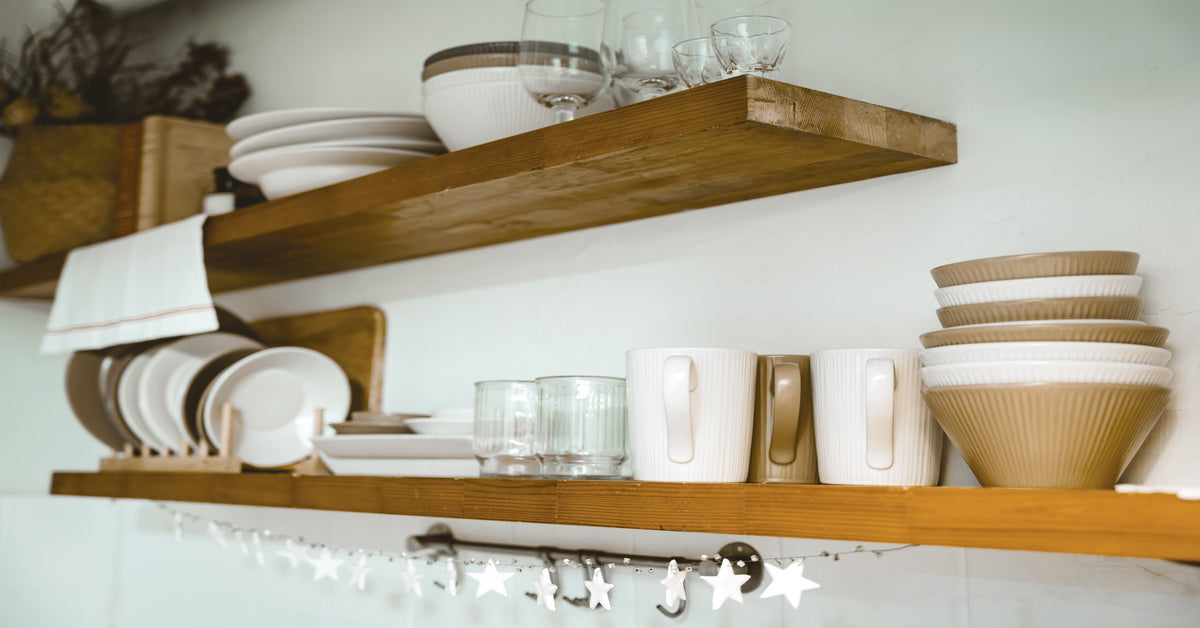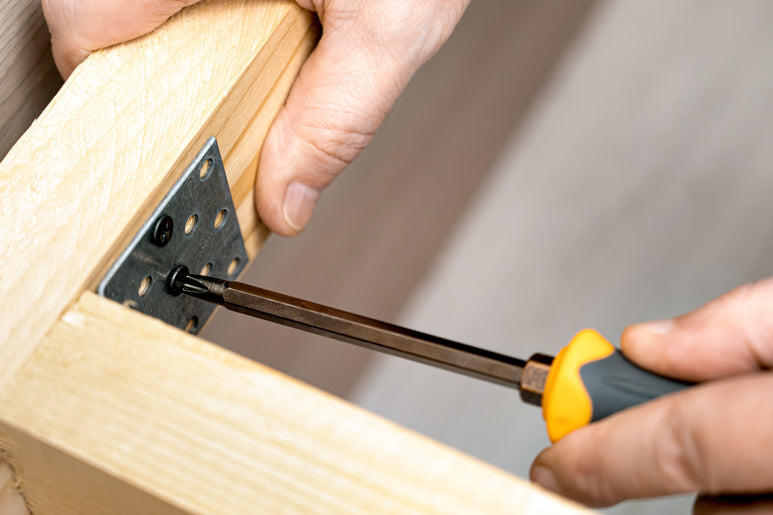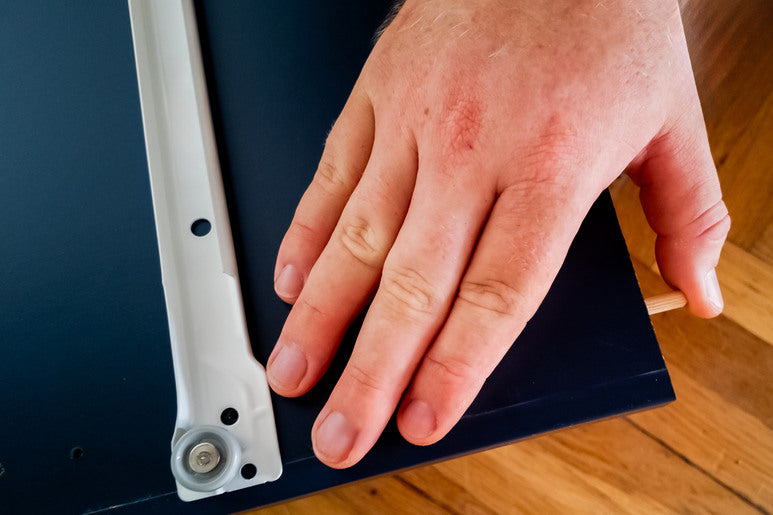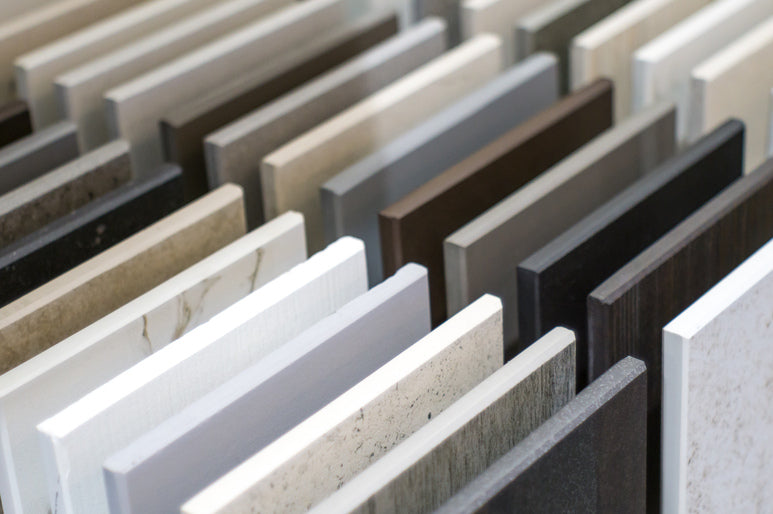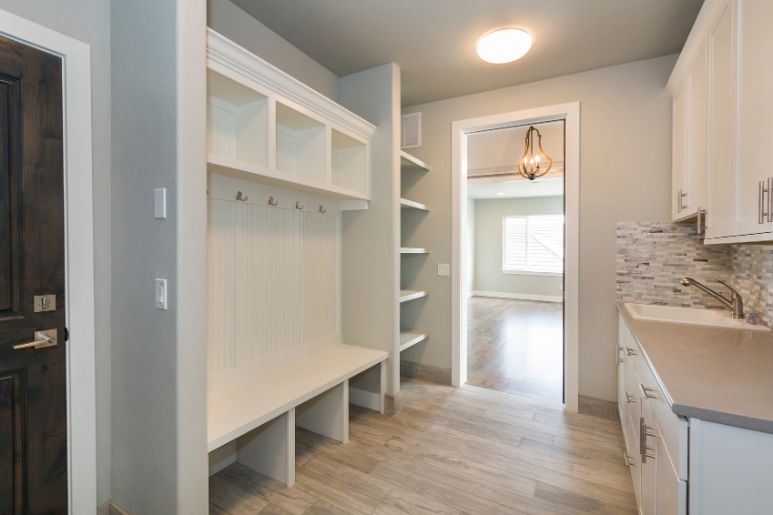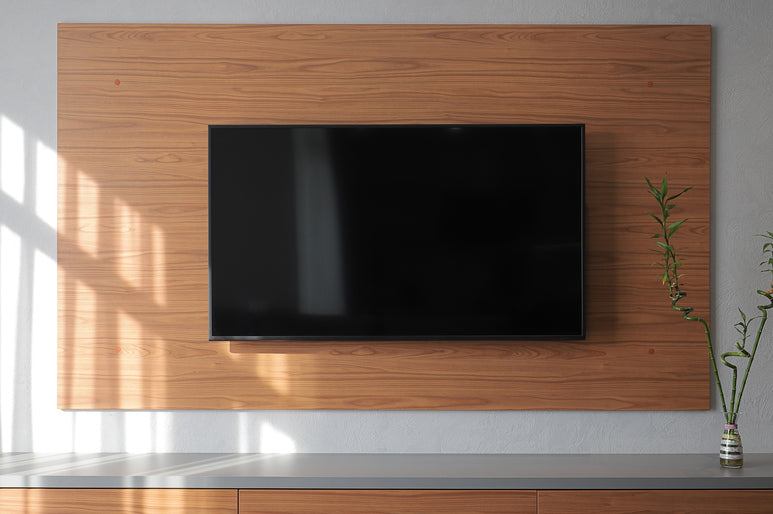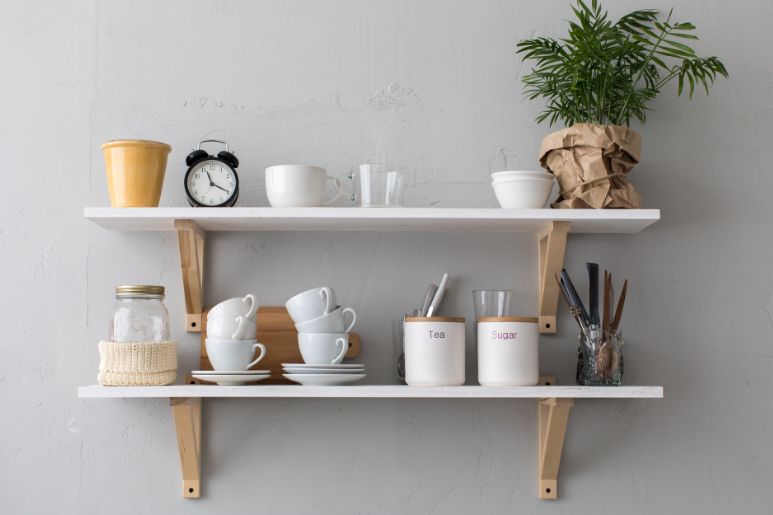
How To Choose the Right Screws for Your Shelf Project
If you’re new to the DIY renovation scene, all the different tools, equipment, and accessories can be difficult to discern. This makes choosing parts for your next DIY project an undertaking in itself. For example, if you’re planning a DIY shelf hanging project, you’ll need the right supports and screws to hang them. If you’re unsure exactly which screws you should use out of the many distinct types, keep reading to learn how to choose the right screws for your shelving project.
Different Types of Screws
When shopping for screws at your local hardware store, the sheer number of unique screws you’ll run into can be daunting. You can break down the different types of screws by drive type, which include slotted head, Phillips head, multi-head, flathead, pan head, and round head.
Each of these drive types has unique applications, such as how slotted head screws can connect simple joints or how Phillips head screws are ideal for hardware and appliances. These screw types will be important for your hanging project, and you’ll need specific drill bits to install them.
You can also find more specific screws with unique heads or threading, but for most shelving products, these aspects are less of a concern.
How To Choose the Right Screw
The right screws can determine whether your shelving meets your expectations and successfully serves its purpose. When starting your shelving project, consider your instruction manual, materials, tools, and more to get a better idea of which screws you will need. Here are all the factors that can help you select and prepare the right screws for your project.
Manufacturer Recommendations
First, check the manufacturer’s recommendations if you’re using a shelving kit or guide. An instruction manual or pamphlet usually provides some notice of which types of screws you will need to complete the project. From there, it’s as simple as visiting your local hardware store and matching the right screws with the instructions.
Of course, things won’t be so simple if you start your shelving project from scratch or add custom shelving that you’ve cut yourself. Sometimes your shelving kit won’t even come with instructions. If you don’t have any instructions to guide you, consider a few factors about the materials you’re working with and your overall project to help you narrow it down.
Size
One of the best ways to start identifying the screws you need is by size. When you’re trying to connect two boards together or screw a support into your wall, you’ll need to account for the width or length of your working material. For example, if you need to drill ¾ inch into a board or stud that is ¾ inch thick, you’d need screws that were at least 1½ inches long.
Weight Rating
Weight rating is the key factor to consider when selecting any type of screw for a hanging project. The same goes for choosing your wall brackets and supports. If your screws or brackets can’t support the weight you’re trying to suspend, the whole thing can come tumbling down after you step away. Using screws with the wrong weight rating is dangerous and costly.
Be sure to measure and weigh the objects you want to hang before selecting your screws and supports. As a best practice, choose a bracket and screws that can hold more than you plan to hang to account for any extra weight.
Wall Material
The type of wall or other vertical space where you’re hanging your supports will also help determine the type of screws you need. For example, a hollow wall material like drywall will require a specialty kind of screw known as an anchor. These wall anchors provide support for the screw.
On the other hand, solid walls require a unique kind of screw as well. Solid wooden walls are compatible with most traditional screws and wood screws. However, to tackle solid cinderblock or concrete walls, you’ll need a specialty masonry anchor. Always choose an anchor or screw with a rating for the type of wall material you’re working with—otherwise, you risk damaging your wall or support.
Indoor vs. Outdoor
The material of the screw itself doesn’t have as much influence on your indoor projects compared to your outdoor projects. If you’re hanging shelves, installing brackets, or building anything outdoors, you’re going to want a screw that can hold up to tough outdoor conditions. Specialty outdoor screws such as silicon-coated bronze screws or stainless-steel screws offer protection against the elements and prevent corrosion.
Indoor screws usually don’t require coatings like these, as homeowners regulate temperatures and moisture levels. Zinc screws and other traditional screws are more suitable for indoor use.
If you’re installing shelving in your garage, consider how much insulation the space has. If your garage ever experiences humidity, using specialty outdoor screws may be the right solution for you.
How To Find the Right Shelving Support
Now that you know all the tips and tricks to select the right screws, you don’t need to limit yourself to hanging projects or kits that might not provide them. Instead of skipping over any listings that mention “screws not provided,” you can take on the challenge of selecting the perfect screws yourself.
If all else fails, don’t be afraid to ask your local hardware store associate for help. For example, here at Right On Bracket, we can recommend all the right tools you’ll need to start your hanging project with any of our brackets. We detail all our modern shelf brackets with precise hardware recommendations and instructions to make your job easier.
After checking out our tips to choose the right screws for your shelf project, you can pick out the proper parts for your DIY project with confidence. Once you outline the various factors and materials you’re working with, it makes choosing the right screw much easier. And remember, if you need help choosing the right shelf support for your upcoming job, check out our selection of heavy-duty shelf supports and more here at Right On Bracket.



